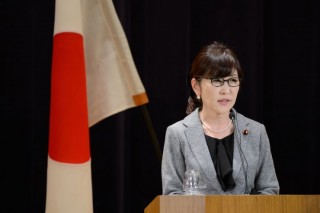Loading
Search
▼ Japan Needs More Foreign Workers, Abe Aide Tells Investors
- Category:Other
Key Points
- With a rapidly declining and aging population, means it needs to accept more foreign workers, Tomomi Inada, a Japanese politician and close confidante of Prime Minister Shinzo Abe told foreign investors.
- “This is going to put a huge burden on the economy,” Inada said of estimates that the country’s working age population will fall an average of 1.1 percent a year over the next 50 years.
- Changes to Japan’s residency law could see 350,000 new foreign laborers in the country over the next five years, she said.
Japan has ample room to accept more foreign labor to help fill a critical and widening demographic gap that threatens its future prosperity, said a key advisor to Japanese Prime Minister Shinzo Abe on Wednesday.
Japan’s shrinking and aging population is the biggest structural challenge that the country faces, according to Tomomi Inada, a member of the Japanese parliament and a former defense minister, who has prime ministerial ambitions.
The country is the world’s third-largest economy and a key member of the Group of 20 nations, but currently faces a harsh reality as its population is aging rapidly and the birth rate declines.
During an address at the Credit Suisse Asian Investment Conference in Hong Kong on Wednesday, Inada cited Japanese statistics showing that the country’s working age population will fall by about 1.1 percent a year over the next 50 years.
“This is going to put a huge burden on the economy,” said Inada, who is a special aide to Abe in his capacity as president of the ruling Liberal Democratic Party.
Seeking foreign workers
Abe’s government, in power for more than six years, has tried various measures — including tax breaks and other incentives — to boost capital investment and research and development, Inada said. It is also trying to improve opportunities for women and older workers.
“Nevertheless, the shortage of workers remains acute,” she said, adding the administration has taken “active steps” to bring in workers from overseas through a new law passed by parliament last year, that could see 350,000 new foreign laborers over the next five years.
I’m often asked why ‘right wingers like Abe and Inada’ want to increase the number of foreign laborers ... In fact neither Abe nor myself are right-wing. We are conservative.
Tomomi Inada - Japanese lawmaker
Foreign workers have long been visible in Japan, often as students, trainees or people without proper visas and thus prone to exploitation. Inada said the new law will help end such abuses, as well as help boost the economy.
“Foreigners at present account for only around 2 percent of Japan’s labor market,” she said. “That compares to over 10 percent in other major developed economies, meaning that we have abundant capacity to take in more.”
Self-styled conservative
The issue is a controversial one in Japan, where many worry about the capacity of outsiders to adapt to its language, traditions and customs.
“I’m often asked why ‘right wingers like Abe and Inada’ want to increase the number of foreign laborers,” she said. “In fact neither Abe nor myself are right-wing. We are conservative,” she emphasized. She added that it’s people like them — self-styled upholders of conservative and nationalist values — who are the ones that can push for change.
Conservatives “want to protect tradition,” she said. “But ideally to be conservative is to approach change without fear, precisely in order to protect tradition. True conservatives (are) broad-minded, not exclusionary.”
Inada has also called for more opportunities for women in politics and business, and has spoken out in support of acceptance of sexual diversity.
As part of her nationalist image, Inada has visited Tokyo’s controversial Yasukuni Shrine — where the war dead, as well as war criminals executed after World War II — are enshrined. It is a frequent source of tension with South Korea and China.
Inada served as defense minister for nearly a year from 2016 to 2017. But she resigned amid a scandal which hit the defense ministry during her tenure, related to the cover-up of records related to Japan’s peacekeeping mission in South Sudan.
- March 28, 2019
- Comment (0)
- Trackback(0)


